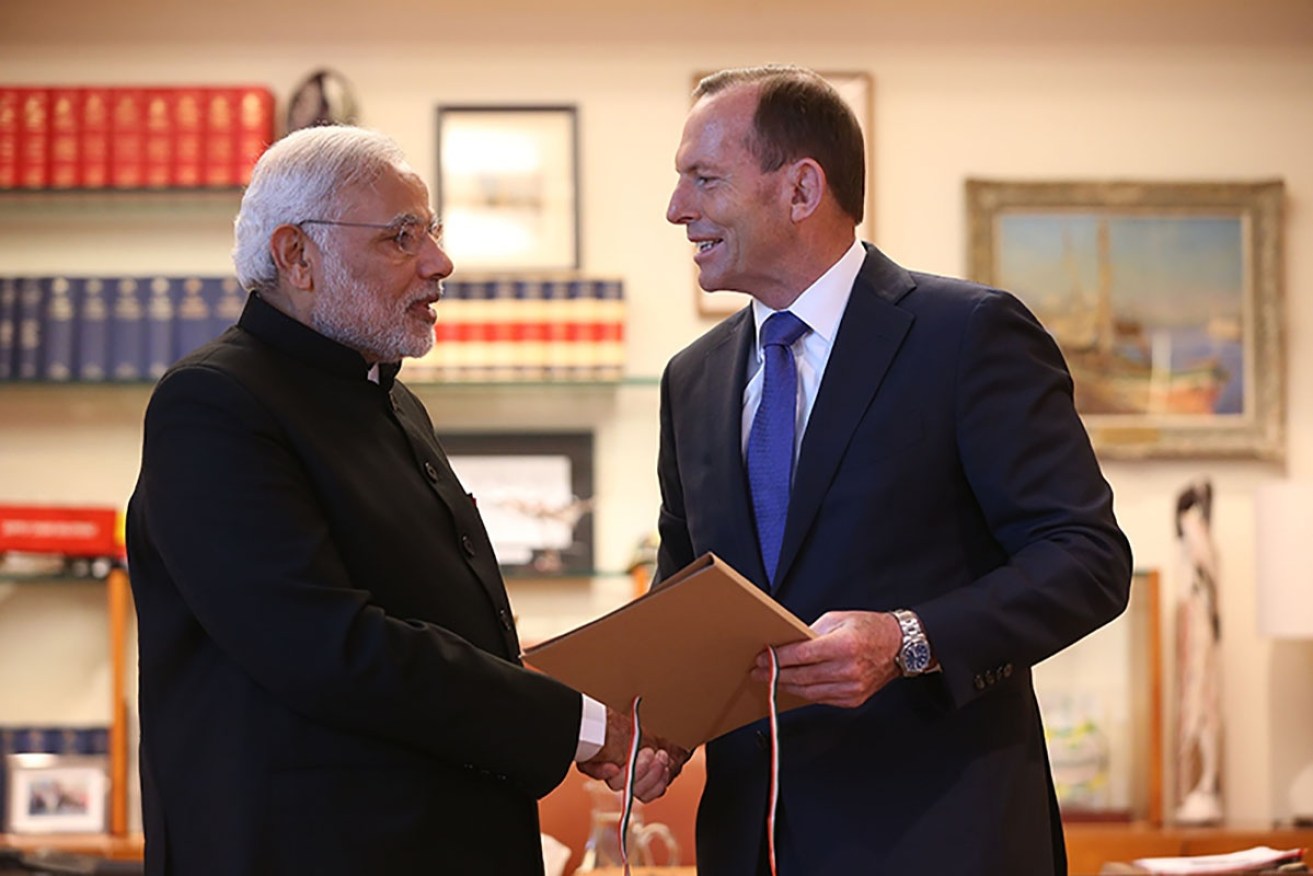India uranium deal faces legal challenge

Getty
The Australian Conservation Foundation (ACF) is mulling a legal challenge to the Abbott government’s controversial agreement to export uranium to India.
The ACF’s nuclear-free campaigner, Dave Sweeney, told The New Daily that his organisation would continue to advance its case against the sale agreement through a parliamentary review process, but added that court action was a “real prospect” if the deal was not renegotiated.
• Government considers nuclear exports
• Most radioactive place on earth found in Australia
The agreement is controversial because India will be the first country permitted to buy Australian uranium without being a signatory to the Nuclear Non-Proliferation Treaty.
“We will look at those legal options available to us and explore what we think are pretty clear legal inconsistencies between the terms of the agreement with India and Australian laws,” Mr Sweeney said.
“The ACF has real concerns that the wording of the agreement is inconsistent with sections of the Nuclear Non-Proliferation Safeguards Act and Australia’s obligations under the South Pacific Nuclear Free-Zone Treaty that was signed by the Hawke government.”
Safeguards weakened
Under the watershed deal struck with India last September, Australia has loosened some of the safeguards that usually apply on international sales of uranium.
The Safeguards Act requires Australia to be able to account for what happens to locally produced uranium once it enters nuclear processing cycles in other countries.
In the longstanding deal with Japan, for example, Australia is able to track the movement of the energy resource through different stages of the nuclear fuel cycle.
The motive for such auditing and tracking requirements is to ensure that Australian uranium is only used for peaceful purposes and not in the production of nuclear weapons.
India, which has an expanding nuclear arms industry, argues that the tracking requirement is costly and should not be made a condition of the supply agreement.
Australia has agreements to export uranium to 41 countries, all of which provide tracking data and other rights to local nuclear regulators.
Former nuclear regulator slams export deal

Tony Abbott negotiated the deal with Indian prime minister Narendra Modi. Photo: Getty
John Carlson, the former director-general of the Australian government’s Safeguards and Non-Proliferation Office, has cast doubt on whether the uranium pact with India is likely to comply with Australian laws.
In a submission to the parliamentary inquiry, Mr Carlson describes the terms of the agreement as “disturbing”, arguing they could lead to a collapse of the existing governance framework for managing uranium exports.
“If the government does compromise Australia’s safeguards conditions, inevitably this will lead to other agreement partners asking for similar treatment,” Mr Carlson states in the submission.
“If we are prepared to give a special deal to India, it will be impossible to justify not passing this on to others (countries) who will question why they are being discriminated against.”
The ACF’s prospective legal action is likely to be based on section 51 of the Safeguards Act that requires Australian nuclear authorities to publish annual reports on the use, location and condition of all exported uranium.
Mr Carlson noted in his submission that this reporting obligation cannot be fulfilled unless the Indian government is willing to allow Australia to track how the uranium was being used.
“Accounting and tracking are not, as the (Australian) government may think, policy options that can be waived, but legal requirements of fundamental importance to the very purpose of the agreement,” Mr Carlson stated.
“The government must be prepared to make it clear to the Indian government that proper accounting and tracking arrangements are legal requirements and as such are not negotiable.”
Mr Sweeney said the evidence given by Mr Carlson to the parliamentary committee was a material warning about the shortcomings of the deal with India.
“For many years the ACF campaigned against decisions made by Mr Carlson on uranium exports that we felt amounted to ‘radioactive rubber stamps’,” he said.
“For him to now say that the deal with India is dangerous is a significant raising of the flag and cannot be disregarded by policy makers.”
Abbott puts the heat on parliamentary committee

Good company: India joins North Korea, Israel and Pakistan as a nuclear power that hasn’t signed the Nuclear Non-Proliferation Treaty. Photo: AAP
The joint standing committee on treaties chaired by Queensland MP Wyatt Roy is under pressure from the Abbott government to conclude its inquiry before the end of March.
Prime Minister Abbott is keen to negotiate a free trade agreement with India before the year is out, but those talks would likely falter if the parliamentary committee recommends that the uranium deal be reworked.
A sign that the committee might be concerned with aspects of the deal will be if it requests access to a top secret “administrative agreement” that instructs both countries on how the uranium deal is to be implemented.
It is not clear whether that agreement will have been finalised before Mr Roy’s committee is due to report its findings to government at the end of March.
The committee is expected to conduct public hearings next month.








